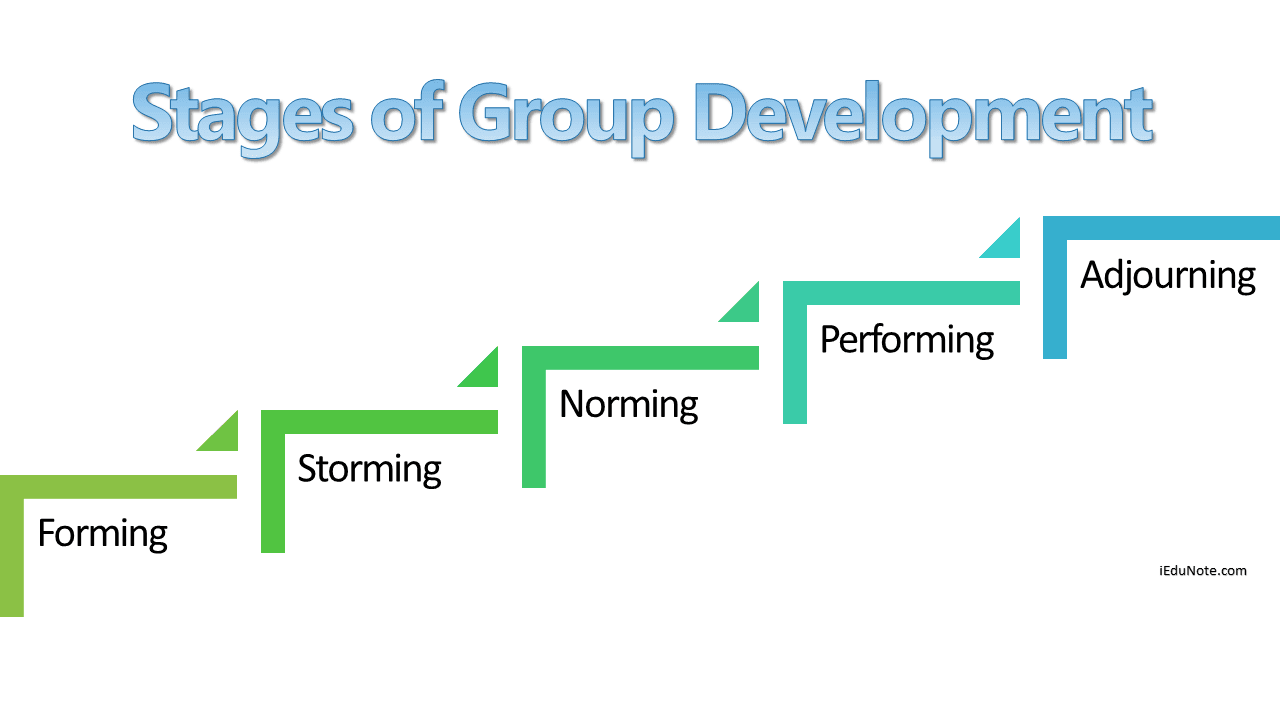Team development is the practice of continuously improving employee relationships, so that their collective experiences can combat issues related to their team’s performance. Team development can often be confused for team building, which is geared toward establishing employee bonds and focuses more on “in-the-moment” employee relations. Contrastingly, team development shines a light on these employee relations and works toward honing such interpersonal connections.
There are five stages in team development, each concentrating on a specific time in the team’s “lifetime”:
- Forming
- Storming
- Norming
- Performing
- Adjourning or Termination
Stage 1 – Forming
This first phase a team goes through is marked by high hopes as well as high anticipation. The team is usually freshly introduced at this point, and individuals begin by sharing their personal skills and forming the general goals the team aims to accomplish.
Since the team is still new, each team member’s distinct personality takes time to surface. Because of this, little work gets accomplished as team members continue to grow used to working with one another.
Stage 2 – Storming
The second stage of team development is the most demanding stage. As team members gradually reveal their work ethics and their different personalities, there can be clashes between members that can become difficult to address and overcome.
Accordingly, little to no work is done that works toward the goals of the team, and members debate over how the team should pursue their objectives.
Stage 3 – Norming
If a team is able to successfully overcome its differences that were illuminated in the Storming stage, then it moves onto the next stage – Norming.
In this third stage of team development, team members establish common ground by understanding each individual’s role in the team and all members direct their efforts toward accomplishing their set goals, allowing cooperation to persist.
While there still are disagreements between members at this stage, they work to resolve such issues and come to appreciate each individual’s diverse perspective.
Stage 4 – Performing
In the fourth stage of development, teams have well-established their structure and work toward the team’s goal with renewed conviction. Key characteristics associated with a team at this stage are maturity and resilience.
The team is also the most productive at this stage, having understood _how_the members work best together and that flexibility in team structure can in fact be conducive to a dynamic synergy.
Stage 5 – Adjourning or Termination
The last stage focuses on completing all outstanding tasks as the team’s tenure winds to a close. Teams can experience a fluctuation in productivity at this stage as members undergo diverse emotional responses to the termination of the team and as team members soon disperse.
Although sometimes overlooked, the last stage of team development is critical in order to reflect on how each distinct stage of team development affected not only the performance of the team, but also that of each team member. The nature of team termination ensures that individuals not only learn from each experience they encounter but they see how their skills have evolved since the formation of the team.
Overall, while they are unique in their own respects, each stage of team development taken together helps to enhance communication and work skills for all team members, so that they not only succeed in their current team, but in all future team endeavors.


Leave a Reply